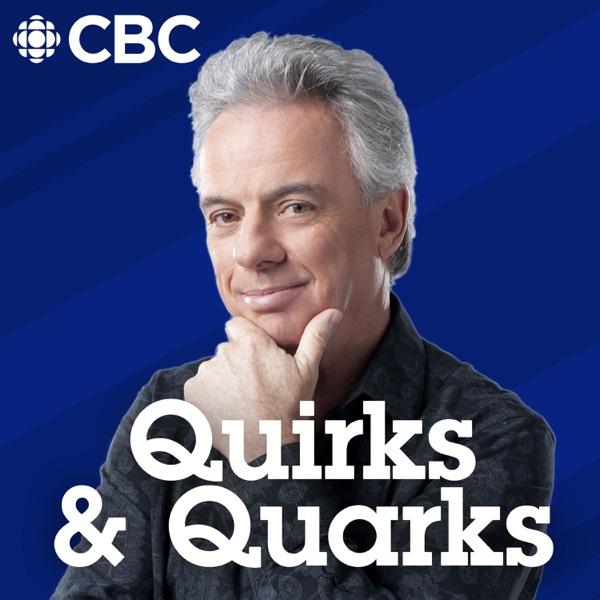
CBC Radio's Quirks and Quarks covers the quirks of the expanding universe to the quarks within a single atom... and everything in between.
CBC Radio's Quirks and Quarks covers the quirks of the expanding universe to the quarks within a single atom... and everything in between.

As soon as the last ice age glaciers melted, Indigenous people occupied this site
A recently discovered archaeological site in Saskatchewan, dated to just less than 11,000 years ago is the oldest settlement in the region by about 1,500 years. It also is evidence that Indigenous people settled there as soon as the environment could support them after the glaciers disappeared. Glenn Stuart, from the University of Saskatchewan, is one of the archaeologists working along with local Indigenous community members to preserve and study the site.
Just the right magnetic field will make sea turtles do a ‘happy dance’
Researchers investigating how sea turtles navigate the vast and trackless ocean have discovered just how sensitive the reptiles’ magnetic sense is, as they can even use it to identify the location of food resources. While feeding the loggerhead turtles in the lab, Kayla Goforth, a postdoctoral researcher at Texas A&M University noticed that the turtles would perform a ‘happy dance’ when they recognized the right magnetic signature. She led this research that was published in the journal Nature.
Intense exercise causes our bodies to belch out DNA that may reduce inflammation
Scientists were surprised to discover that the more intensely you exercise, the more certain immune cells belch out fragments of DNA that can form webs to trap pathogens, and lead to fewer pro-inflammatory immune cells circulating in our blood. Canadian researcher Stephen Montgomery, a professor of pathology at Stanford University, said their findings suggest that circulating cell-free DNA may play a role in how exercise lowers inflammation in the body. The study was published in the journal PNAS.
An ancient Antarctic duck lived at the time of T-Rex
Birds are the last surviving lineage of dinosaurs, but modern birds are surprisingly ancient – dating to before the extinction of the rest of their family. An extremely rare, nearly intact bird skull found in Antarctica and dated to about 69 million years ago confirms this. This waterfowl had similarities to ducks and loons. Chris Torres is an assistant professor at the University of the Pacific in Stockton California and was part of the team that analyzed this fossil. Their research was published in the journal Nature.
Science is being transformed by the AI revolution
The stunning advances in artificial intelligence that we see with internet AI apps are just the tip of the iceberg when it comes to science. Researchers from almost every field are experimenting with this powerful new tool to diagnose disease, understand climate change, develop strategies for conservation and discover new kinds of materials. And AI is on the threshold of being able to make discoveries all by itself. Will it put scientists out of a job?
Producer Amanda Buckiewicz spoke with:
Jeff Clune, a professor of computer science at the University of British Columbia, a Canada CIFAR AI Chair at the Vector Institute, and a senior research advisor to DeepMind. He’s also a co-author of The AI Scientist.
Allison Noble, a Professor of Biomedical Engineering at the University of Oxford and a Foreign Secretary at the Royal Society, and chair of the Science in the Age of AI working group.
Elissa Strome, executive director of the Pan-Canadian Artificial Intelligence Strategy at CIFAR.
Cong Lu, postdoctoral research and teaching fellow at the University of British Columbia and the Vector Institute, and a co-author of The AI Scientist.
Fred Morstatter, a research assistant professor at the University of Southern California, and a principal scientist at USC's Information Sciences Institute.